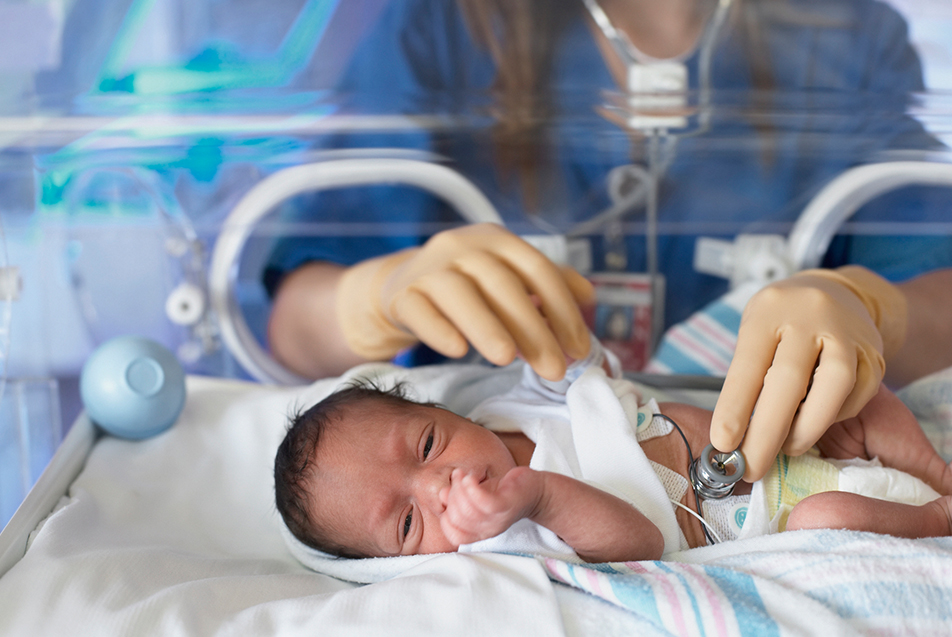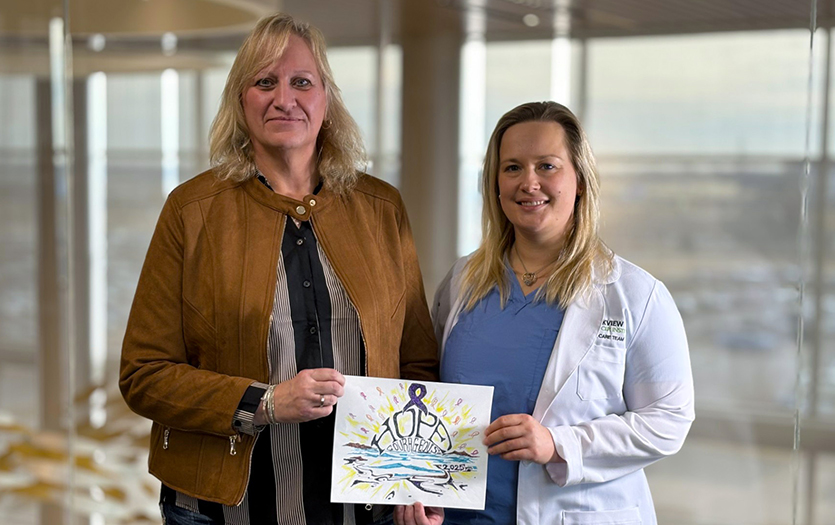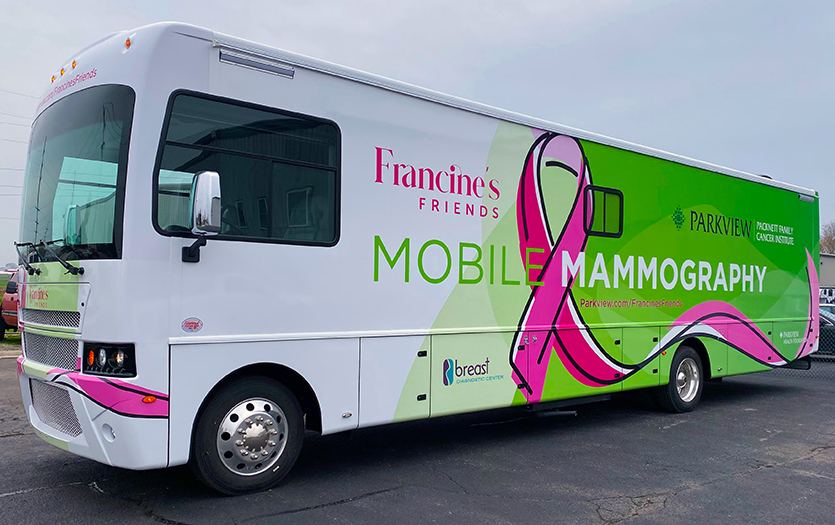
When a new baby arrives, there’s so much to learn! Caregivers have to educate themselves about feedings and safe sleep and even the biology of their baby. Like, for example, the fact that babies can't adjust to temperature changes as well as adults. In fact, babies can lose heat nearly four times faster than an adult. Premature and low-birthweight babies do not have enough body fat to control their own temperature, even in a warm environment.
Thankfully, due to the generosity of Parkview Foundation donors, our Parkview Newborn Intensive Care Unit (NICU) now has a GE Healthcare Giraffe™ Shuttle™. The GiraffeTM ShuttleTM will work alongside the GE Healthcare Infant Resuscitation System™ isolette to continuously help regulate a baby’s body temperature.
Premature babies born at 28 weeks or earlier need a stable, warm environment simply because their lives depend on it. It is very common that by the time the baby is in the NICU, they have been moved three times with three environmental changes. The breeze alone from moving a baby twice, can drop their body temperature one degree.
Jennifer Thieman, BSN, RN, RNC-NIC, Clinical Nurse Specialist Fellow for NICU, and her team had one goal in mind with the Giraffe™ Shuttle™ – decrease the number of transfers to reduce the potential for significant heat loss and therefore reduce morbidities that occur secondary to hypothermia. Those morbidities include but are not limited to, Respiratory Distress Syndrome (RDS), Intraventricular Hemorrhage (IVH), Periventricular Leukomalacia (PVL), Necrotizing Enterocolitis (NEC), and mortality.
Jennifer explained the importance behind the Giraffe™ Shuttle™, saying, “Moving these tiny patients multiple times can induce a large amount of stress or pain which can cause fluctuations in blood pressure and therefore cerebral blood flow. Fifty percent of cases occur within the first 24 hours of life and Grade III and IV hemorrhages put patients at high-risk of developing hydrocephalus, cerebral palsy and long-term development delays. In order to help prevent these outcomes, less movement by the healthcare team can help alleviate stress and possible changes in cerebral blood flow.”
Transfers between beds, although short, can lead to a significant amount of convective heat loss in the smallest of patients. Without the ability to regulate their body temperature, the neonates rely solely on the healthcare team to provide and maintain heat. And when they need to be transported from the labor room to the NICU, the Giraffe™ ShuttleTM does more than just make that journey away from mom gentler – it makes it safer, too. That’s because it’s clinically proven to provide better thermoregulation and reduce the risks associated with traditional intra-hospital transport.
“Our whole unit is super excited for this. This will be so much better for those babies to move them less and decrease these risks such as IVH. Babies can stay in the bed for an entire week and will no longer need to be moved multiple times,” said Jennifer of the donor generosity.
To find out how you can make a difference in the lives of Parkview patients, visit ParkviewFoundations.org.



